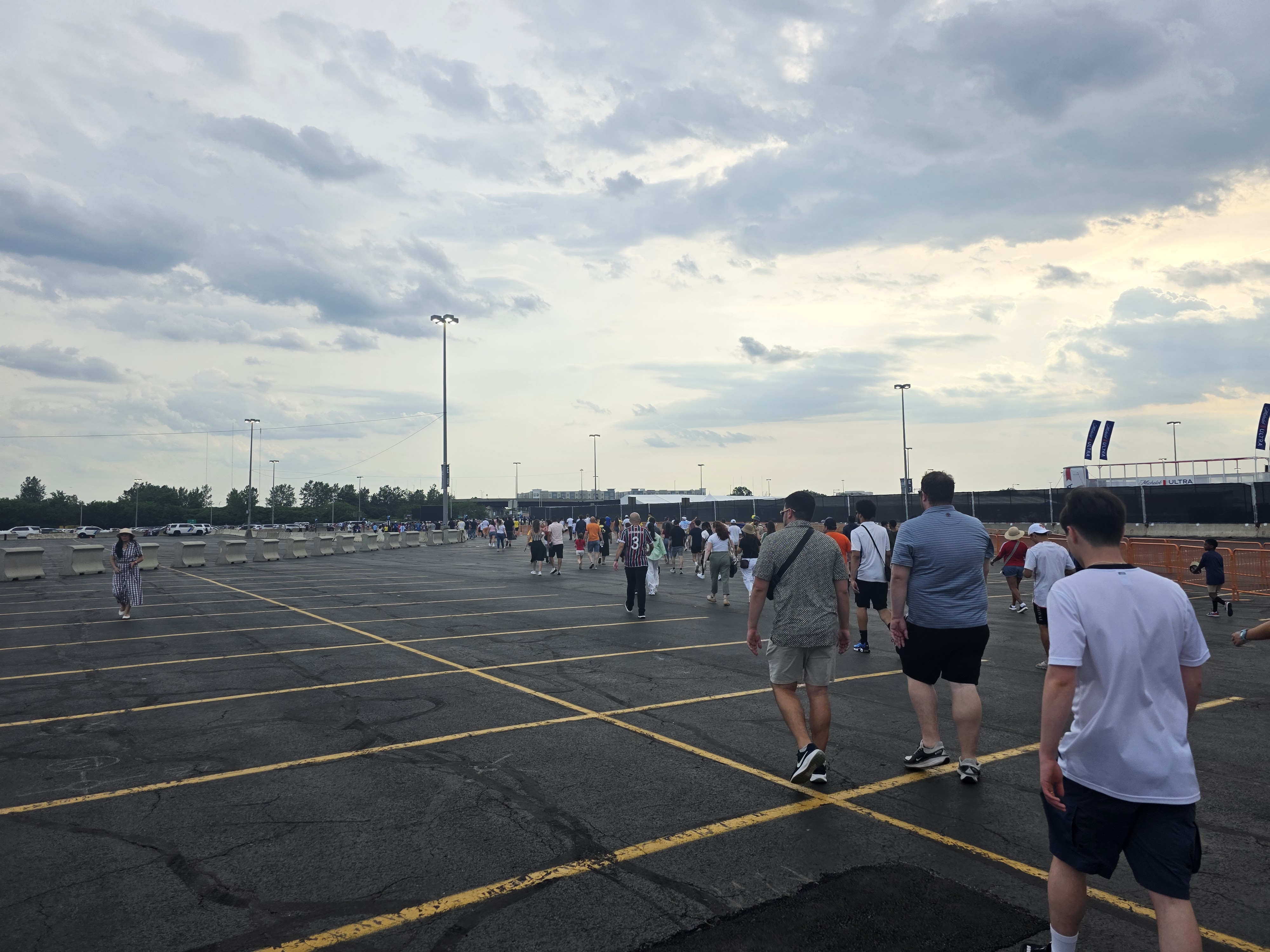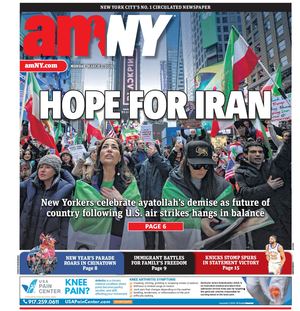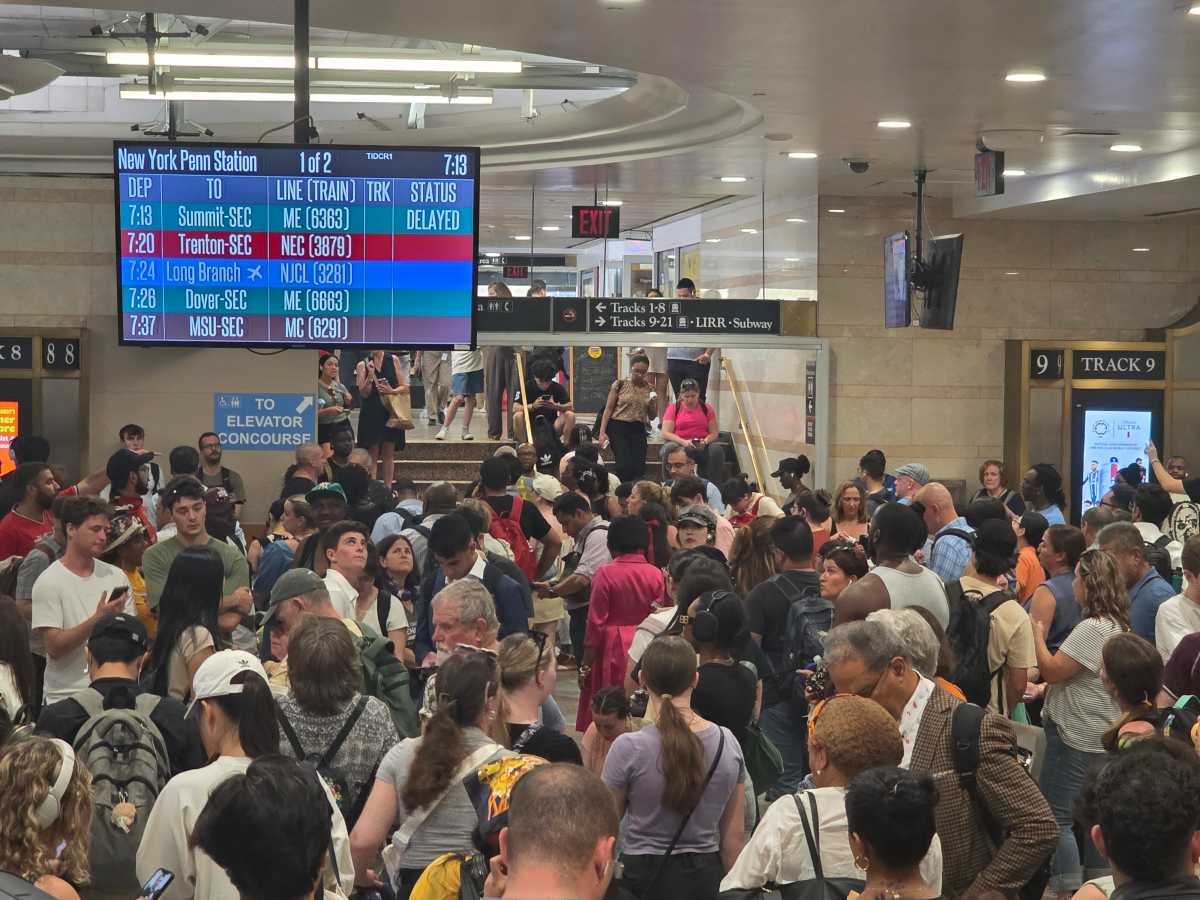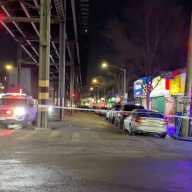If the recently concluded Club World Cup showcased the role that NJ Transit can play in moving fans to MetLife Stadium for the World Cup next summer, it also showcased that the transit system has quite a way to go before it is ready for the biggest show on earth.
For the most part, fans traveling to and from MetLife Stadium from New York’s Penn Station experienced relatively seamless travel, or as seamless as any journey with a changeover at Secaucus Junction can be. But a significant minority of fans reported issues and concerns, such as delays, cancellations, and infrastructure malfunctions throughout the tournament, that must be addressed before next summer.
NJ Transit moved 153,154 people to and from the East Rutherford venue during the nine Club World Cup games held at MetLife. The vast majority of fans traveled from New York Penn to East Rutherford via a changeover in Secaucus Junction. Of that figure, however, only 61,261 fans used the transit system to travel to the stadium during the tournament, while 91,893 fans used NJ Transit trains and buses to make their way home.
The 61,261 fans who traveled to MetLife via NJ Transit is a small fraction of the 491,231 fans who attended Club World Cup games at MetLife over the past month – just 12.5% to be exact – which can be explained by the fact that most Club World Cup fans were US-based and had the means to drive to games.
The 2026 World Cup will be a different beast altogether, with a much higher percentage of international fans forecasted to travel to the New York—New Jersey region next summer.
The majority of those fans will not have access to cars and will rely on public transport to travel to and from MetLife. NJ Transit currently estimates that up to 40,000 fans will use their system to travel to the stadium for each game next summer. That is quite an increase from the average of 6,800 fans who traveled to games using NJ Transit this summer.
NJ Transit President Kris Kolluri said the system will ramp up capacity ahead of next summer to transport up to 20,000 passengers per hour. The expansion will include spending $100 million to improve access between Secaucus Junction and MetLife and adding a new bus terminal at Secaucus.
But with those types of numbers, any issues, however isolated they may be, could prove detrimental with the eyes of the world on New York and New Jersey.
Even during some of the lesser-attended Club World Cup games, fans experienced issues traveling to the stadium via Secaucus.
Ahead of Fluminense’s clash with Ulsan HD at MetLife on Saturday, June 21, for example, around 900 fans boarded a 5:07 train to Long Branch to make the 6 p.m. kick-off time. The train, however, did not leave Penn Station until close to 5:20, reaching Secaucus 13 minutes behind schedule. When it reached Secaucus, the doors jammed for roughly 7 minutes, leaving passengers stuck on the train and further delaying traveling supporters. A number of passengers in the packed carriages also reported feeling claustrophobic while waiting for the doors to open.
The result was that, one minute before kickoff, more than a thousand fans could be seen rushing around the perimeter of MetLife Stadium in a desperate bid to find their gates. Only 29,321 people attended that game. Each World Cup game is likely to be a sell-out at the 82,000-seater arena.
In response, Kolluri encouraged fans to come to games early next summer and not leave it until the last minute. He noted that both NJ Transit and FIFA encouraged fans to leave for the stadium as early as possible throughout the Club World Cup and said it is “regrettable” that doors malfunctioned at Secaucus.
“To leave just a few minutes before kickoff to get to a game is a challenge,” Kolluri said. “The walking, once we let people off the train station at MetLife to get to the seat, is (also) a bit of a trek for logistics and security reasons.”

That advice works in theory, but the reality is that fans next summer will still leave it late to travel to the stadium, especially if it is a clash between two European teams, where fans seem happy to play chicken with kick-off times.
Ahead of Porto’s clash with Al-Ahly at 9 p.m. on June 23, fans were again left with long delays traveling to MetLife due to cancellations. A 6:47 train bound for Trenton was delayed until 7:13, with no other trains departing for Secaucus in the meantime. The train eventually disappeared from the board.
As a result, Penn Station’s compact concourse was packed with fans waiting for an alternative train and track to be posted. When a train was eventually announced, a scrum of passengers formed around the entrance to the platform, as is usual due to the layout of Penn Station’s concourses.
Dafe, a New York-based fan who traveled by train to Sunday’s final, said multiple trains were canceled early on Sunday afternoon, causing significant delays getting to the stadium.
“They definitely could use a little more capacity, and they ought to announce the trains a little better,” Dafe said.
Kolluri acknowledged that the Penn Station boards should have accurately reflected train cancellations, but said the issue stems from Amtrak communications. He also noted that NJ Transit will significantly expand capacity ahead of next summer.
Kolluri also described issues such as delays or cancellations as “isolated incidents” and said he is incredibly proud of NJ Transit teams for moving over 150,000 fans to and from MetLife Stadium over the past month.
A spokesperson for the NYNJ Host Committee said officials are working with NJ TRANSIT, MTA, Amtrak, and other local transit agencies to create a “seamless” experience for fans next summer.
“Ultimately, we were able to take note of what worked during the Club World Cup and where there are opportunities to improve. From the semis to the eventual final, that process improved with each match,” the host committee spokesperson said.
To be sure, numerous fans reported overwhelmingly positive experiences while using NJ Transit over the last month, including Modesto, a Mexico-based Real Madrid supporter who traveled to the stadium for Madrid’s semi-final against PSG on July 9.
“It was perfect,” Modesto said of his experience. “There were a lot of signs and a lot of people helping.”
Robert Mulligan, a fan from Scotland who traveled to the US specifically for Sunday’s final, described his experience as “wonderful.”
As if to highlight the challenge facing NJ Transit next summer, however, Mulligan also outlined how a delayed train at Penn Station left him with a long wait time at Secaucus. Mulligan also added that he was “surprised” by how dirty his train was.
Those varying experiences highlight how damaging delays and cancellations can be, even if they are isolated and part of a “wonderful” or “perfect” transit operation.
Fans from all over the world will flock to MetLife to see their nation play on the world stage. For many, it will be a once-in-a-lifetime experience, and any issue that causes them to miss even part of that experience will not be viewed lightly.
With that said, however, public transport remains by far the best way to travel to MetLife next summer, offering affordability at $12.90 for a round trip and more convenience than driving, for the most part.
For more on NJ Transit and the World Cup at MetLife Stadium, visit AMNY.com
Also Read : https://www.amny.com/sports/yankees-second-half-pre-7-16-25/







































